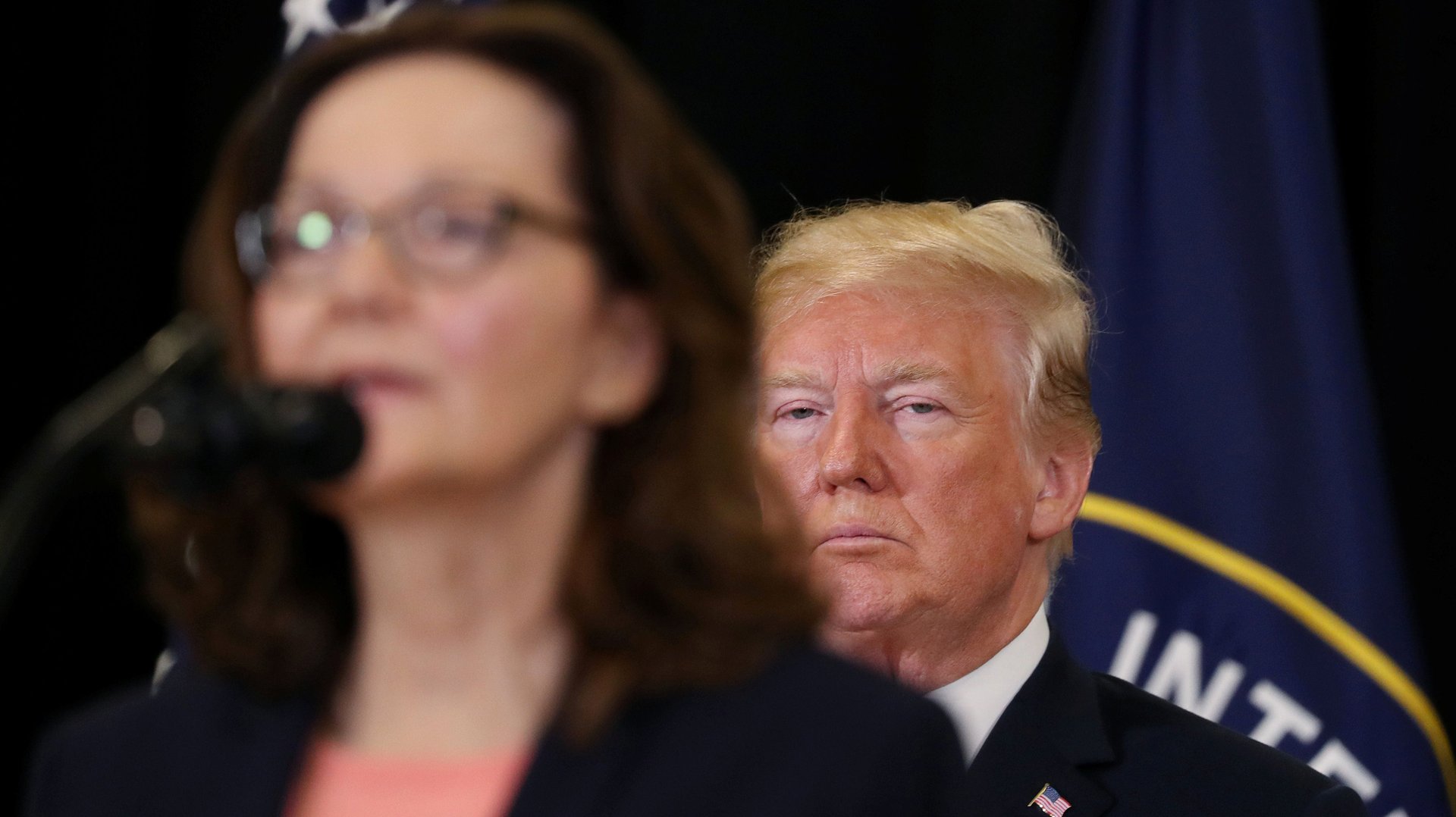There’s a centuries-old leadership lesson in the CIA report on Jamal Khashoggi’s death
The CIA has an imperfect history that makes it far from morally irreproachable. But according to British historian Christopher Andrew, the agency and other western intelligence services are more effective than any of their rivals. And Andrew has a theory about why.


The CIA has an imperfect history that makes it far from morally irreproachable. But according to British historian Christopher Andrew, the agency and other western intelligence services are more effective than any of their rivals. And Andrew has a theory about why.
In the West, he said “[o]ne of the reasons that we’re bound to carry on being far better than the Russians, far better than the Chinese, far better than the North Koreans…is that it is very frequently possible to tell policymakers that they’re wrong,” Andrew, an emeritus professor of modern and contemporary history at Cambridge University, said in a talk at New York’s new Spyscape museum on Nov. 10.
Days later, a leaked CIA report on the death last month of Saudi journalist and dissident Jamal Khashoggi would prove his point.
Specifically, the CIA assessed whether the de facto head of Saudi Arabia, crown prince Mohammed bin Salman, was involved in the gruesome murder at the Saudi consulate in Istanbul.
If the Saudi royal were to be implicated, it would complicate life for US president Donald Trump, who calls Saudi Arabia a “spectacular ally.”
Nevertheless, in its analysis, the CIA reportedly concluded with high confidence that the crown prince ordered the reporter’s death.
Sometimes you have to take a slipper to the head
In interviews after the CIA report was leaked, Trump claimed he still has no idea whether the Saudi ruler was complicit in Khashoggi’s death. He has suggested that the truth may never surface. “I don’t—I don’t know. You know, who can really know?” he said in a Fox News appearance. “But I can say this, he’s got many people now that say he had no knowledge.”
Earlier today (Nov. 20), he issued a statement based on a separate White House evaluation, saying, “Our intelligence agencies continue to assess all information, but it could very well be that the Crown Prince had knowledge of this tragic event—maybe he did and maybe he didn’t!”
Surely, CIA director Gina Haspel would have seen this dismissal of the CIA’s work coming. Her willingness to support an inconvenient truth is in keeping with what Andrew believes is the perfect definition of the job. That definition, Andrew said, comes courtesy of a chief intelligence officer under former British prime minister Margaret Thatcher, who once said, “My job is to tell the prime minister what she doesn’t want to know.”
Hundreds of years before Thatcher took office in 1979, this same sentiment was expressed by the head of security for queen Elizabeth I, the historian continued.
That man, Sir Francis Walsingham, also felt strongly that his job was to tell the queen “what she needed to know, but not necessarily but she wanted to hear.” Anyone who has read or seen depictions of Elizabeth’s disposition would understand, he added, that “she was not someone you would disagree with without some amount of trembling.”
Indeed, “[a]fter one disagreement in 1586,” Andrew writes in his new book, The Secret World: A History of Intelligence (Yale University Press, 2018), “an exasperated Elizabeth took off one of her slippers and threw it as his head.”
No progress without psychological safety
Though flinging slippers at employees is now frowned upon, not much else has changed over the centuries for forthright intelligence officers and the leaders they debrief. At the Spyscape talk, former CIA station chief Daniel Hoffman, who was also on the panel, confessed that it’s “not super pleasant” to tell the director of the CIA, the president, or policy makers things that they don’t want to hear, but it’s the role. “You can sleep better at night if you do,” he added, “and I have.”
Knowing he probably wasn’t risking his job, or his freedom, or his head, as he might have as an employee of another nation, must have aided that slumber.
The ability to share truths without fear of retribution or shaming is the ultimate challenge and source of strength for any organization. If you work under a leader whose ego can take some bruising, it’s easy to forget the powerful connection between psychological safety and survival, let alone the link between psychological safety and progress or innovation.
Strong corporate leaders also know that a company’s ability to avoid dangerous pitfalls depends on a basic understanding that sharing information, even when it will only create headaches, is encouraged. Companies like GM have learned this lesson the hardest possible way, after recognizing that its toxic culture of shaming employees led to defective cars and unnecessary deaths. Hopefully, Facebook’s leaders will heed a similar lesson soon.
In the meantime, the unfolding drama around Trump’s refusal to criticize Saudi Arabia, or enact sanctions, is a good reminder that even the best leadership efforts—in this case, on the CIA’s part—do not always change outcomes.